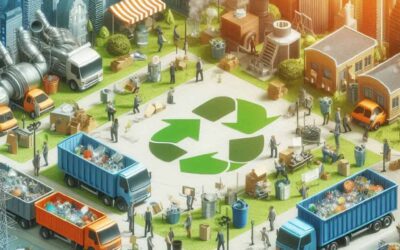This year, Earth Overshoot Day – the day on which our use of the Earth’s resources exceeds its ability to regenerate in the year – falls on August 2nd. That’s nearly 5 months before the end of the year.
According to the Global Footprint Network, the body which calculates Earth Overshoot Day, the ‘deficit’ in resources is caused both by our depletion of natural resources and by the emissions and other waste that we create.
This year’s calculations show that in 1971, Earth Overshoot Day was Christmas Day. Ten years later, it was November 20th. In 1991 we lost another whole month, and in 2001, We were on September 13th. 2011 saw us on August 6th and, with the exception of 2020, when calculations were significantly affected by global lockdowns, the date has remained within the first 10 days of August.
No time to get complacent
It may seem, looking at these figures, that things are ‘slowing down’ and there’s nothing much to worry about. But it’s important to note a couple of things. First, the Global Footprint Network annually recalculates the Overshoot Day for every previous year where there are relevant records. This ensures that all the calculations are made on the same basis, providing an accurate comparison.
Second, the statisticians involved in these calculations believe that the speed of progression and the rate at which the world is still consuming more than it can regenerate is more important than the year-on-year comparative figures. Only when Earth Overshoot Day starts moving backwards in a consistent way can we say that we are making any improvements.
When is the UK’s Overshoot Day?
In addition to a global Overshoot calculation, the Global Footprint Network looks at when Earth Overshoot Day would be if everyone across the world consumed in the same way as one particular country. The results are stark.
The UK’s Overshoot Day, based on our consumption and waste emissions, would have been May 17th. The first country to Overshoot, on February 10, is Qatar, and the last, on December 20th, is Jamaica.
How can we make a positive impact?
The decisions we make for our personal, national and global energy use and waste management can help to move Earth Overshoot Day back. Adopting a circular economy model, where we prevent mining for new resources and focus on renewable energy sources, reuse existing materials and recycling of those that can’t be reused, is the best way to help protect the Earth’s resources.
Individually, this means thinking about what we buy, how we travel, where we live, how we heat and power our homes, and how we actively reuse or recycle to reduce our demand on nature’s resources.
Nationally, it means businesses and government organisations thinking about how we design and run services. How we integrate better, cleaner modes of transport and how we support communities to live and work more sustainably. We also need to pay attention to the state of nature – preserving wild spaces, reintroducing helpful flora and fauna, promoting biodiversity and sustainable ecosystems within existing areas and across new developments and reversing the damage done by activities such as over-fishing.
And globally, it means working together to reduce land loss for farming or other food production, supporting nations who are most at risk from climate change, and committing to and working towards the UN’s Sustainability Development Goals.
Waste and recycling – play your part
The waste and recycling industry has a key role to play in efforts to push back Earth Overshoot Day. Not only are we able to help businesses and individuals to reduce their waste by supporting sustainable collection, reuse and recycling; but we can also contribute to the circular economy by reselling materials in secondary markets, supporting commercial customers in their own sustainability endeavours and showing public authorities how waste can be addressed positively and profitably.
Your business needs to be in a strong position to contribute in this way – particularly where technology is concerned. That’s why we’d suggest you take a look at Waste & Recycling One – a dedicated and complete software solution for the industry, driving process transformation, year-on-year cost savings and delivering a competitive edge.
To find out more, contact our team today or visit our showcase below.






